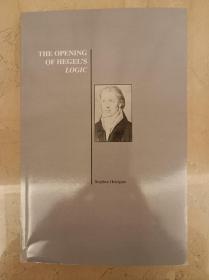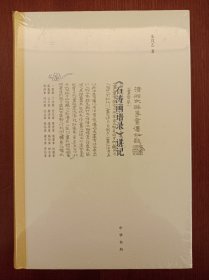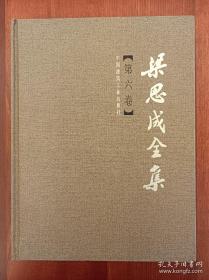
The Opening of Hegel's Logic: From Being to Infinity(进口原版,国内现货,实拍书影)
¥ 575 九品
仅1件
上海长宁
认证卖家担保交易快速发货售后保障
作者Stephen Houlgate
出版社Purdue University Press
ISBN9781557532572
出版时间2006
装帧平装
页数476页
货号g1
上书时间2021-12-14
- 在售商品 暂无
- 平均发货时间 13小时
- 好评率 暂无
- 最新上架
商品详情
- 品相描述:九品
- 书脊上下两端及书角在物流过程略受挤压褶皱,新书未曾使用,详见实拍书影。
- 商品描述
-
Hegel is one of the most important modern philosophers, whose thought influenced the development of existentialism, Marxism, pragmatism, hermeneutics and deconstruction. Yet Hegel's central text, the monumental ""Science of Logic"", still remains for most philosophers (both figuratively and literally) a firmly closed book. The purpose of this title is to dispel the myths that surround the ""Logic"" and to show that Hegel's unjustly neglected text is a work of extraordinary subtlety and insight. Part one argues that the ""Logic"" provides a rigorous derivation of the fundamental categories of thought and contrasts Hegel's approach to the categories with that of Kant. It goes on to examine the historical and linguistic presuppositions of Hegel's self critical, ""presuppositionless"" logic and, in the process, considers several significant criticisms of such logic advanced by Schelling, Feuerbach, Gadamer and Kierkegaard. Separate chapters are devoted to the relation between logic and ontology in Hegel's ""Logic"" and to the relation between the ""Logic"" itself and the ""Phenomenology"". Part two contains the text in German and English of the first two chapters of Hegel's ""Logic"". Part three then provides a clear and accessible commentary on these two chapters that both examines Hegel's arguments in detail and relates his insights to those of other philosophers.
Stephen Houlgate is a professor of philosophy at the University of Warwick. His books include The Opening of Hegel's Logic: From Being to Infinity (Purdue, 2006), and An Introduction to Hegel: Freedom, Truth and History (Blackwell, 2005).
— 没有更多了 —





















以下为对购买帮助不大的评价